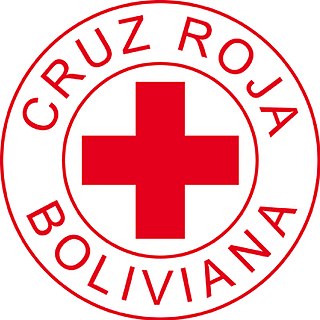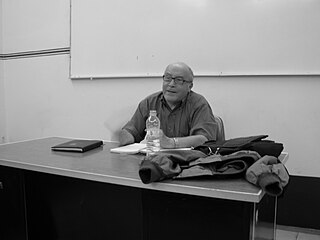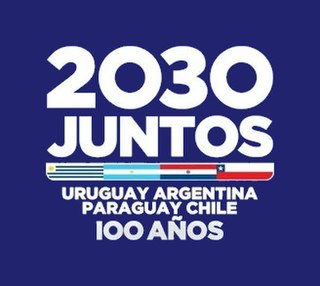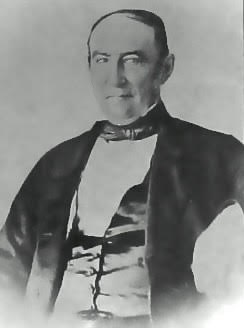Related Research Articles

The president of Bolivia, officially known as the president of the Plurinational State of Bolivia, is head of state and head of government of Bolivia and the captain general of the Armed Forces of Bolivia.

The Revolutionary Nationalist Movement is a centre-right, conservative political party in Bolivia. It was the leading force behind the Bolivian National Revolution from 1952 to 1964. It influenced much of the country's history since 1941.

La Orotava is a town and a municipality in the northern part of Tenerife, one of the Canary Islands of Spain. The area of the municipality stretches from the north coast to the mountainous interior, and includes the summit of the Teide volcano, Canary Islands' and Spain's highest point at 3,718 m. At 207.31 km2, it is the largest municipality of the island of Tenerife. The population is 41,255 (2013).

Aniceto Arce Ruiz de Mendoza was a Bolivian lawyer and politician who served as the 22nd president of Bolivia from 1888 to 1892. He also served as the fourth vice president of Bolivia from 1880 to 1881 under Narciso Campero. The Aniceto Arce Province is named after him.

Álvaro Marcelo García Linera is a Bolivian politician, sociologist, Marxist theoretician, and former guerilla who served as the 38th vice president of Bolivia from 2006 to 2019. A member of the Movement for Socialism, in the early 1990s he was a leader of the Túpac Katari Guerrilla Army.

Ricardo Piglia was an Argentine author, critic, and scholar best known for introducing hard-boiled fiction to the Argentine public.
Nelson Bonifacio Acosta López, nicknamed Pelado Acosta, is a former Uruguayan-born Chilean football manager and footballer. He became a naturalized Chilean citizen in 1984 and managed several football teams. He is now retired.

The Central Bank of Bolivia is the central bank of Bolivia, responsible for monetary policy and the issuance of banknotes. The current president of the BCB is Pablo Ramos Sánchez.

The Bolivian Red Cross was officially founded in Bolivia on 15 May 1917 by Dr. Juan Manuel Balcazar. It has its headquarters in La Paz.

Marina Núñez del Prado was a celebrated Bolivian sculptor.
The constant political turmoil that Bolivia has experienced throughout its history has slowed the development of Bolivian literature. Many talents have had to emigrate or were silenced by the internal conflict. In recent years the literature of Bolivia has been in a process of growth, with the appearance of new writers. Older writers such as Adela Zamudio, Oscar Alfaro, and Franz Tamayo continue to be important.

Armando Alba Zambrana was a Bolivian writer, journalist, historian and politician from Potosí. He won the Premio Nacional de Cultura in 1969. He was an important member of Gesta Bárbara and founded the Editorial Potosí group of writers. During the administration of President Enrique Hertzog, Alba was appointed Minister of Education and Indigenous Affairs. He was also the Bank Secretary of Potosí and the 100th anniversary of birth was celebrated in 2001.

Renato Prada Oropeza was a Bolivian and Mexican scientist-literary researcher and writer, author of novels, short stories and poetry books, hermeneutics, semiotics and literary theory. Many of his literary works have been translated into several languages. He was one of the most distinguished semioticians in Mexico and Latin America.
Rigoberto Rojas Suárez, better known as Tarateño Rojas, was a Bolivian singer, musician and composer based in Argentina. He sang and played traditional Andean music and is a symbol of friendship between the Bolivian and Argentine people.

The Uruguay–Argentina–Chile–Paraguay 2030 FIFA World Cup bid also Known as the South American Bid or Simply The South Bid is an unsuccessful joint bid to host the 2030 FIFA World Cup by Uruguay, Argentina, Paraguay and Chile. The tournament's name would be Centenary World Cup.
Águila Roja is a Spanish adventure television series set in Spain during the 17th century. It was produced by Globomedia for Televisión Española and was broadcast on La 1 of Televisión Española from 2009 to 2016. It is one of the channel's most successful shows, and its rights have been sold to several countries.
The Casa Solariega de José de Diego, also known as the Lería Esmoris Residence, is a historic home built in 1897 and listed on the National Register of Historic Places.
Armando Ibáñez Correa is a Bolivian football manager and former player who played as a midfielder.

Atanasio de Urioste de las Carreras was a Bolivian merchant and magnate and the founder of the Urioste family. He attained a great fortune through his commerce and became one of the richest men in the nascent nation of Bolivia. His descendants include the famed Princess of La Glorieta, a very popular figure in Bolivia, Atanasio de Urioste Velasco, and the industrialist Armando Julio Urioste Arana.
Raúl Mariano Pino Terán was a Chilean football manager who worked in Chile and Bolivia.